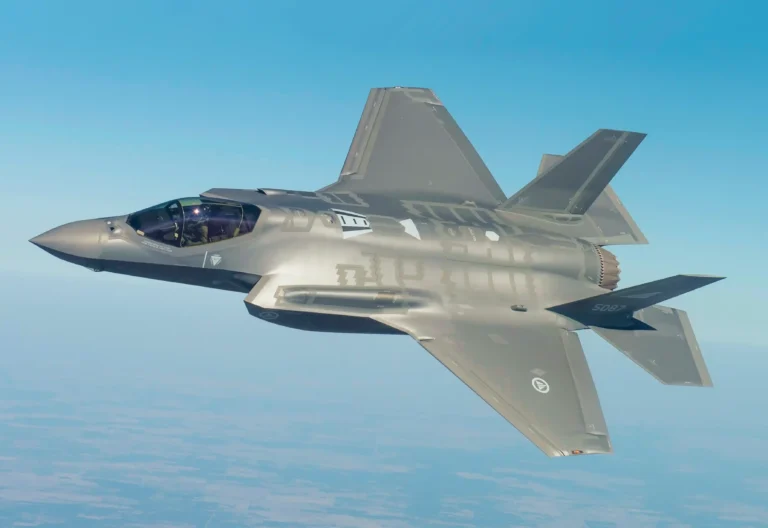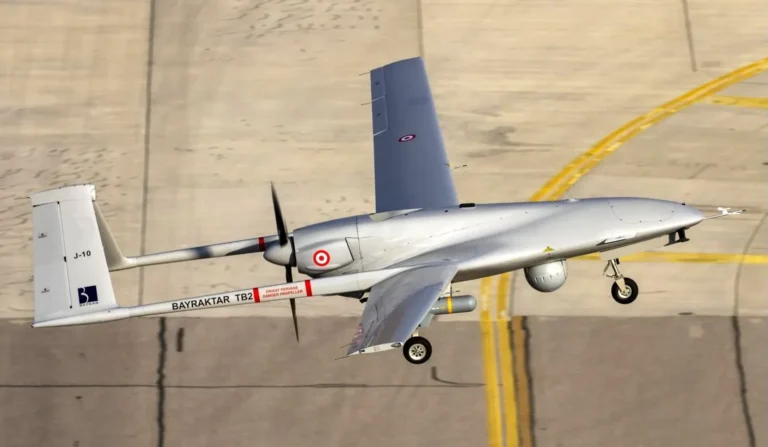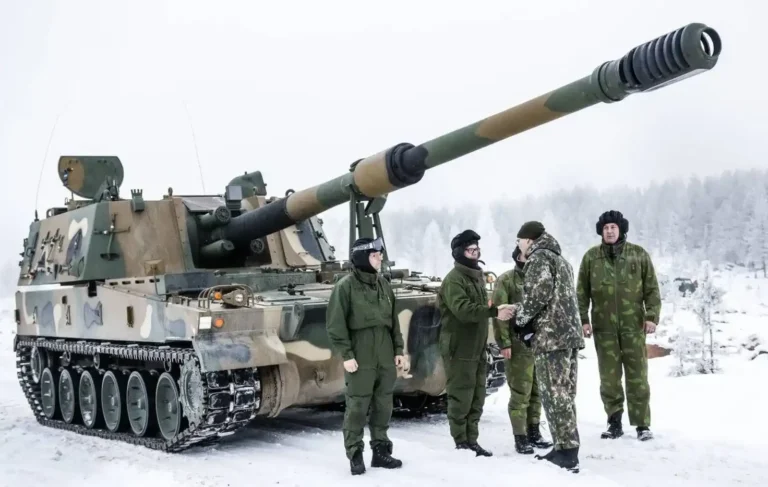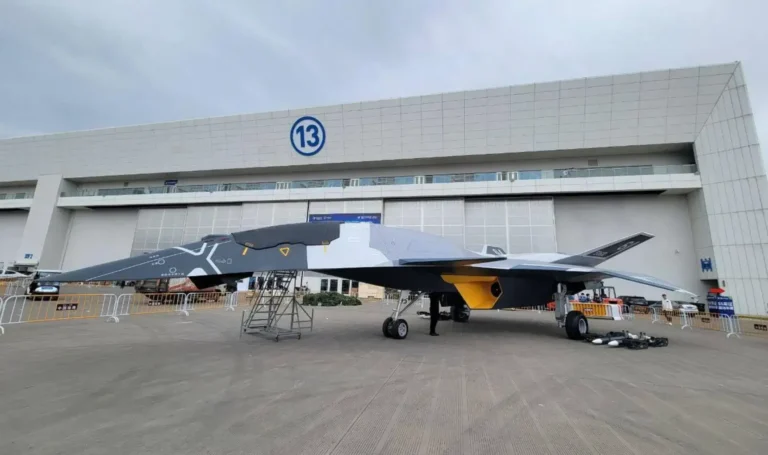Follow Us:
On November 8, 2024, India took a significant step forward in its defense capabilities by entering a strategic partnership with Russia. Bharat Dynamics Limited (BDL), India’s leading defense manufacturer, signed a Memorandum of Understanding (MoU) with Rosoboronexport (ROE), Russia’s state arms export agency, to co-develop enhanced versions of the Pantsir air defense system.
The agreement, formalized at the fifth session of the India-Russia Inter-Governmental Commission (IRIGC) subgroup held in Goa, demonstrates a renewed commitment to strengthening defense relations amid complex global security dynamics, including the ongoing Russia-Ukraine conflict.
The Power and Precision of the Pantsir-S1 Air Defense System
Developed by the KBP Design Bureau in Tula, Russia, the Pantsir-S1 is a highly versatile air defense system designed to protect against a wide range of aerial threats. Known for its agility and robust firepower, the Pantsir-S1 combines both missile and gun capabilities to secure military bases, essential infrastructure, and critical assets from enemy air assaults.
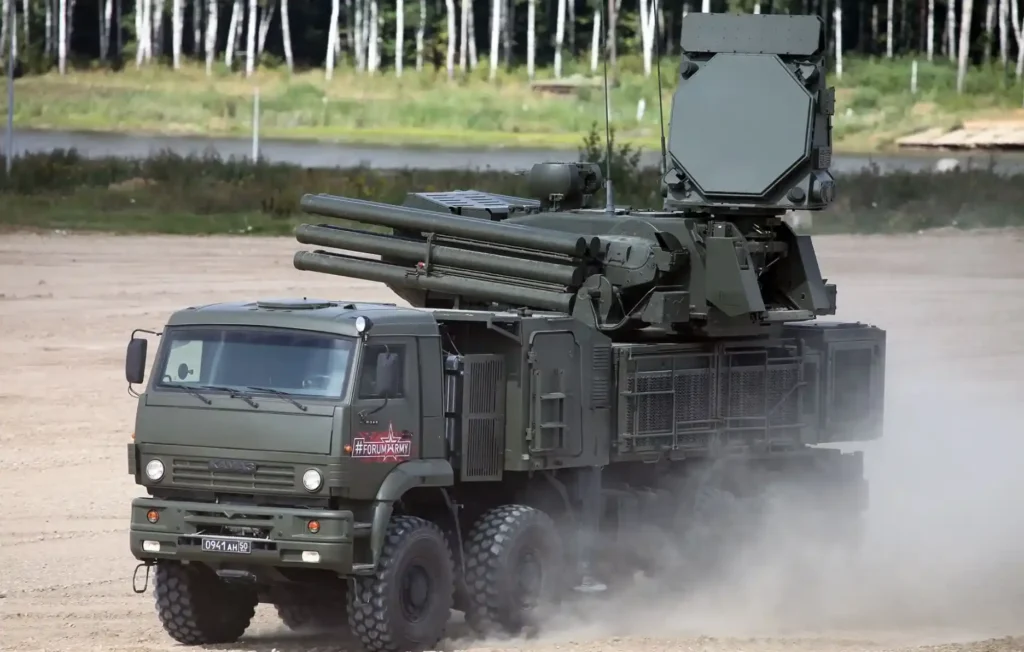
This system includes twelve 57E6 surface-to-air missiles and two powerful 30mm automatic cannons, capable of neutralizing targets within a 20 km missile range and a 4 km gun range, making it an effective shield against low- to mid-altitude threats such as subsonic cruise missiles, drones, and precision-guided munitions.
Mounted on an 8×8 all-terrain chassis (typically Ural or Kamaz models for Russian forces), the Pantsir-S1 is designed for high mobility across diverse terrains, supporting operations even in challenging environments.
Equipped with multi-band radar and advanced infrared imaging, the Pantsir-S1’s fire control system excels in precision targeting and has a high tolerance for electronic countermeasures, allowing it to detect, track, and eliminate threats even under intense electronic warfare conditions.
The Pantsir-S1 has become a crucial asset in the defense arsenals of multiple countries, including Russia, Syria, and the United Arab Emirates, where it safeguards ground forces and vital installations from contemporary air-based attacks.
The MoU was signed by BDL’s Managing Director, Commodore A. Madhavarao (Retd), and Mr. Kovalenko German, ROE’s Deputy Director of the Naval Department. This partnership represents a crucial move by India to diversify its air defense systems and reinforce its longstanding ties with Russia.
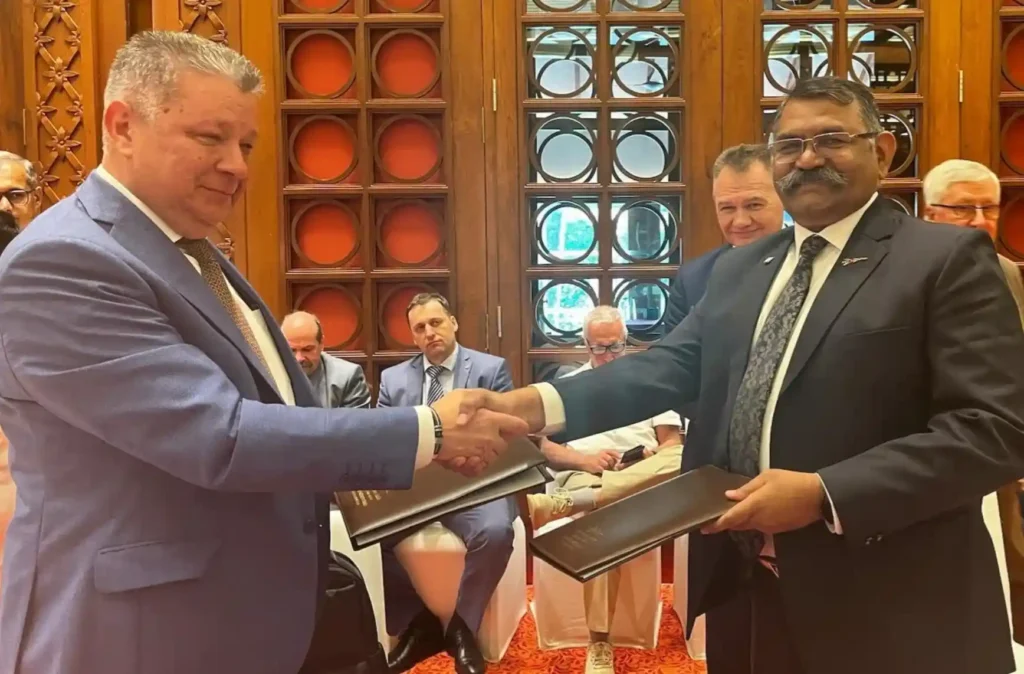
As India’s armed forces seek to strengthen defense self-reliance, collaborations like this align with the “Make in India” initiative, which encourages local manufacturing of critical defense technologies.
Through the combined expertise of BDL and Rosoboronexport, this venture could pave the way for the domestic production of the Pantsir system, reducing India’s reliance on imported systems and fostering technology transfer from Russia.
Why the Pantsir System Fits India’s Defense Requirements
The Indian Army has recognized the need for a self-propelled air defense system to shield its mechanized units in dynamic and high-risk environments. In line with this objective, the Army issued a Request for Information (RFI) in July, outlining the requirements for an air defense solution.
The specifications call for a system equipped with 30mm cannons, capable of engaging targets at a range of up to 3.5 km, alongside missiles with an effective range of 6.5 km and a maximum altitude reach of 3 km. Mounted on six- or eight-wheeled vehicles for enhanced mobility, the Pantsir-S1 meets these criteria, positioning it as an optimal solution to meet India’s air defense needs.
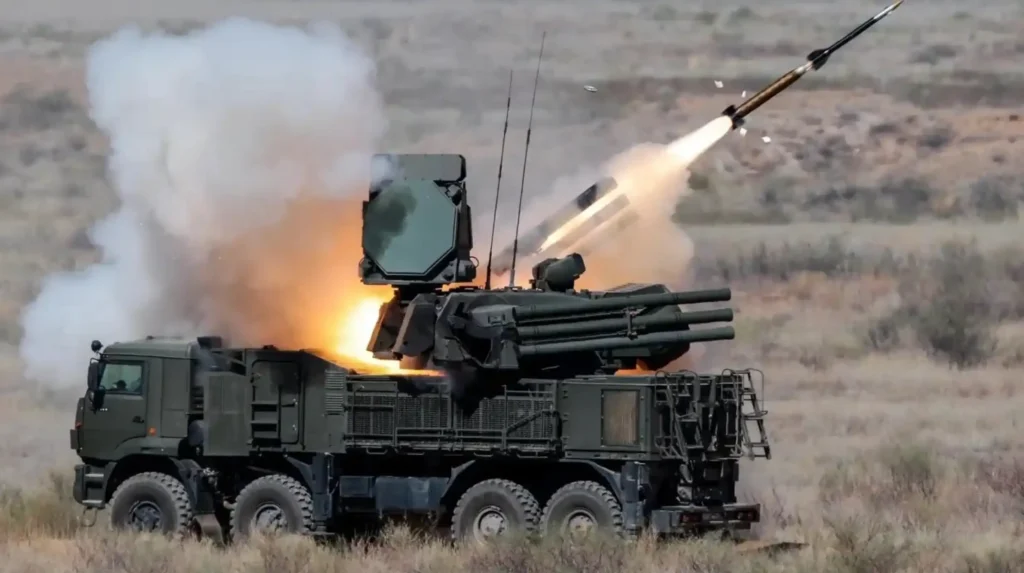
The Pantsir’s ability to engage multiple aerial threats, including drones and low-flying aircraft, and its resilience in electronic warfare scenarios make it a valuable addition to India’s defense arsenal. This system’s versatility and adaptability across different terrains enhance India’s readiness to counter regional threats, providing broad coverage and dependable defense against large-scale air assaults.
India’s defense relationship with Russia is longstanding, with Russia consistently serving as a primary supplier of arms to India. According to the Stockholm International Peace Research Institute (SIPRI), Russia accounted for 34% of India’s defense imports between 2019 and 2023.
The recent MoU reflects India’s ongoing efforts to maintain strong defense ties with Russia, which has been a vital partner in India’s defense modernization initiatives. High-profile acquisitions, such as the S-400 Triumf air defense system, underscore the depth of this collaboration, enabling India to strengthen its air defense capabilities with cutting-edge Russian technology.

Defense Feeds
Defense Feeds is publication focusing on informing, engaging, and empowering the world by providing accurate information from defense technology.
Powered by Defense Feeds © 2024 – All rights reserved.

